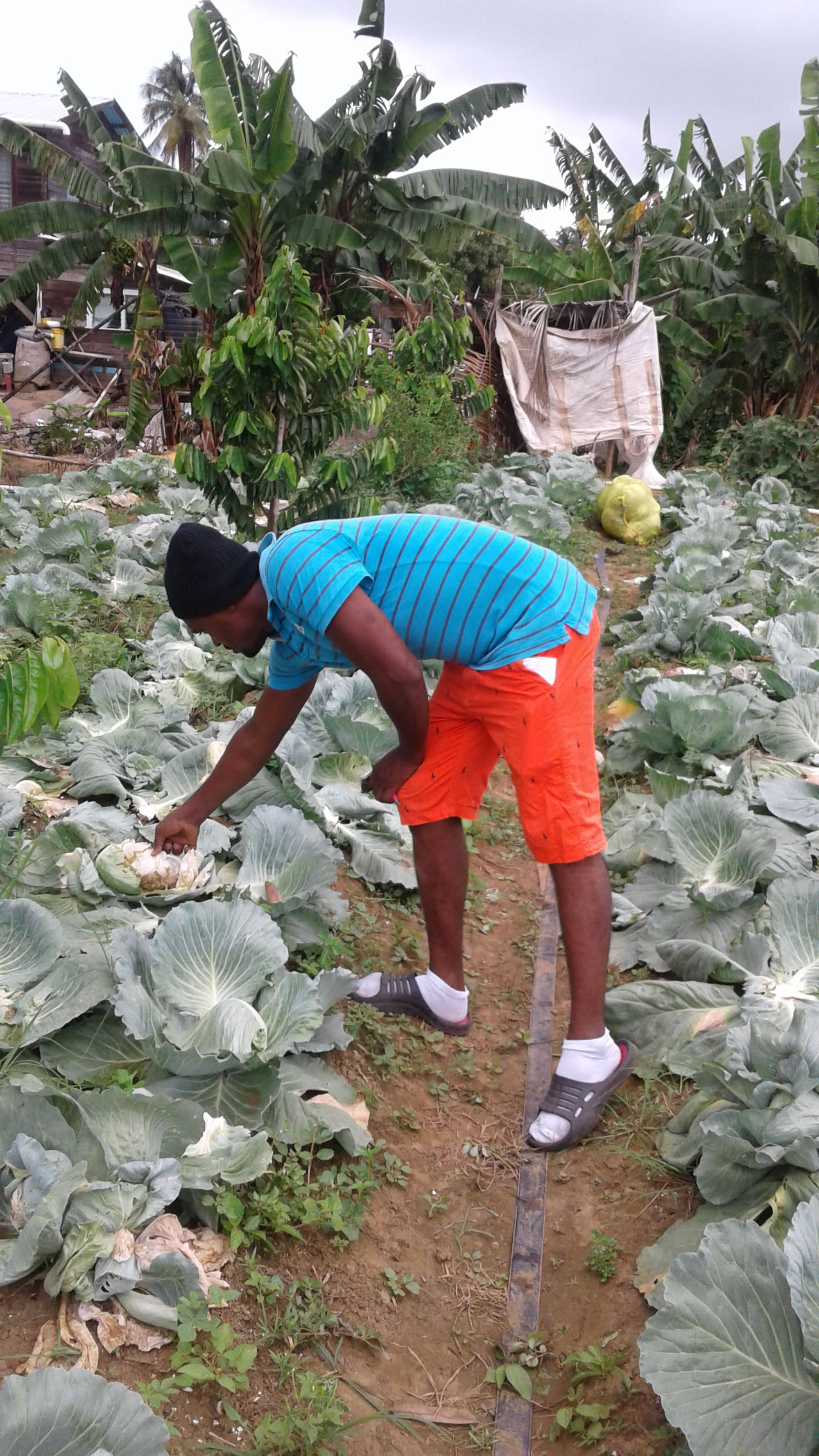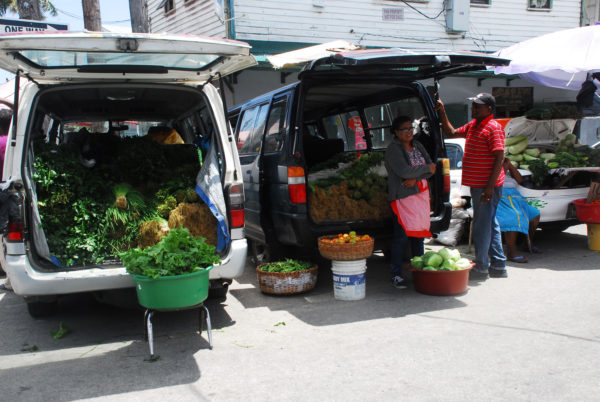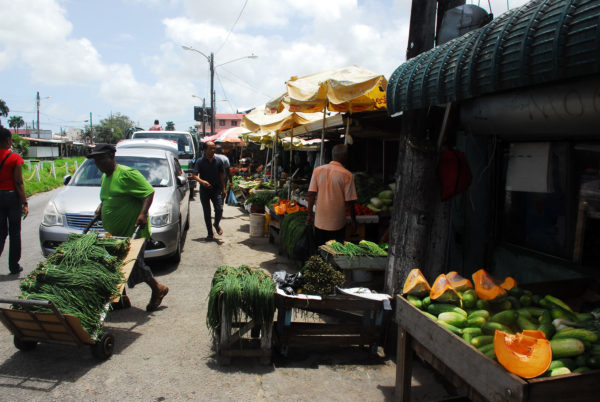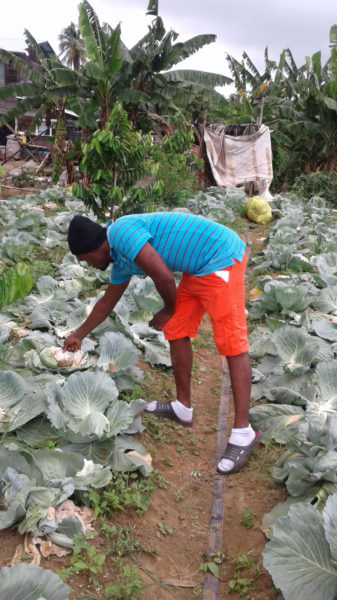Bringing the market to the farm is the responsibility of the middleman in the agricultural sector. At the end of each crop the sight of middlemen traversing farms equipped with hand-held scales is commonplace. Purchasing quality produce at affordable prices is only one aspect of the middleman’s pursuits. The next phase, the re-selling of the produce, is entirely dependent on the vagaries of the market.
At 30, Quincy Shepard, implausibly, is a retired farmer. These days his attention is focused on working as a full-time middleman. Four years ago, Shepard was a medium-scale, cash-crop farmer cultivating pepper, tomato, cabbage and boulanger. After reaping, Shepard would both wholesale and retail his own vegetables. As his customer base grew, demand for produce increased and in order to satisfy that demand he began purchasing crops from other farmers in his community, Now or Never, Mahaicony. Perhaps surprisingly, it worked.
During a recent visit to a cash crop farm at Now-or-Never by the National Agricultural Research and Extension Institute (NAREI) Shepard could be seen weighing cabbage prior to purchase for re-sale in Bourda Market. The success of middlemen like Shepard in securing regular supplies of food crops for re-sale is the direct result of the NAREI’s sustained involvement in the activities of farming communities.
Over time, Shepard has worked out reliable business arrangements with vendors operating at the Mon Repos, Bourda, and Stabroek markets. He visits the farms himself taking advantage of the freshness of the produce. Purchases based on specific customer requests averts the eventuality of excess acquisition. Spoilage is kept to a minimum. If there are any spoils, Shepard sells his produce at either cost price in order to break even or else, as seed materials to a plant shop.
Shepard has also learnt quite a few tricks of the trade. He has studied the sector’s value chain and understands the power of market forces. Whilst purchasing good quality produce to sell to his customers is a priority, maintaining a good relationship with his regular suppliers is also important.
“After purchasing from a particular set of farmers they become your suppliers so whether their produce is of high quality or not I still purchase from them…The price mightn’t be as high as the price for the product that is of good quality on the market but that is the responsibility I will take,” Shepard related.
Maintaining this relationship is paramount since competition could be stiff among middlemen to obtain ‘loads’ reliably. Even if they are not competing to purchase from the same farmers the middlemen need to maintain good relationships with their usual suppliers to have first preference to crops.
According to Shepard, “The middleman faces competition from other middlemen… If not to get a good ‘load,’ to get a good price on the market. Sometimes in this area tomato is plenty and sometimes in another area it may not be plenty. So when I go on the market I could sell cheap cause I have plenty but when the other middleman goes he may sell for $20 more…and I get the better deal that day.”
Shepard said it is the vendors and the consumers rather than the middlemen that are in control of the market. By the time the produce arrives at the market, the vendors have already decided on what they are willing to pay. This leaves the middleman at a disadvantage.
In a free-market economy where market forces determine prices, middlemen profit the most in circumstances of uncertain supply. Shepard explained that when there are shortages of particular food crops, resulting from unfavourable weather or pest-related issues the middleman can ‘call the shots.’
He said too that middlemen face “real competition” from farmers who ‘double’ as middlemen, since they are better equipped to control prices. And, it is at this point that the quality of the goods being presented on the market takes centre stage.
“It is competitive at the marketplace… Some farmers are also vendors. They produce their own crops and go and sell. We have to look to sell it to get a profit. Sometimes farmers sell less than us… say a $20 difference and sometimes we work for only $20 per pound,” Shepard said.
Against this backdrop, Shepard said that some of the criticisms levelled against middlemen are both uncalled for and embarrassing. He said that contrary to the view that middlemen customarily “fleece” farmers, the truth is that they view them as vital partners. Middlemen, he said, cannot get their job done without the help of farmers.
“We do make a profit and that is why we are in business… But we do incur the risks of taking the produce without knowing whether customers would purchase,” Shepard added.










